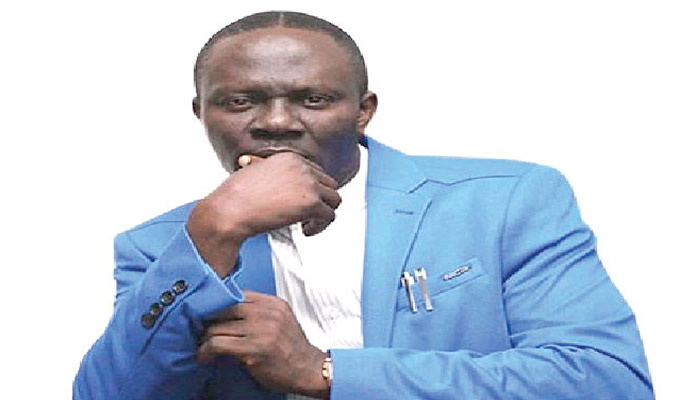
The upcoming governorship election in Edo State seems to be primarily contested between Governor Godwin Obaseki and his reinstated deputy, Philip Shaibu, rather than the candidates of the Peoples Democratic Party and the All Progressives Congress. Mr. Kassim Afegbua, the State APC Director of Media for the election campaign, discusses the state’s situation and the efforts to gain power from the ruling party in this interview with BIODUN BUSARI.
What is your take on the statement made by reinstated Edo State Deputy Governor, Mr. Philip Shaibu, regarding his reasons for switching back to the APC?
Philip Shaibu, as the Deputy Governor of Edo State, was reinstated by a court of law. It is expected that he receives all the privileges of his office. The governor should provide him with these privileges as he is a product of the country’s constitution, not just the governor’s discretion. We live in a lawful society where he should be entitled to full benefits of his office even after defecting to the APC.
Do you believe that Shaibu’s benefits, including his security details from the Inspector-General of Police, have been fully restored since the court ruling reinstating him as the Deputy Governor?
There is no question that he holds the position of Deputy Governor and is enjoying all the entitlements that come with it. However, the governor has been disregarding the constitution and the court’s decision. His statements about causing disorder and defying court rulings show his dictatorial tendencies.
The relevant security agencies are aware of Shaibu’s position as the Deputy Governor. He recently traveled to the United States for a summit and is expected back soon. The focus should be on Governor Obaseki’s autocratic behavior rather than worrying about Shaibu’s status, as Obaseki is imposing his will on the people of Edo. This is why we oppose his efforts to install a successor who mirrors his behavior.
Can you provide an update on the police and APC’s progress in apprehending those responsible for killing a policeman during an attack on the Edo APC governorship candidate’s convoy, Senator Monday Okpebholo?
Following the incident, we lodged a formal complaint with the police after a police inspector was killed. Witness statements were taken, and an investigation is ongoing. The Edo State government reportedly asked some suspects to leave the state, but arrests have been made, and the investigation continues.
We suspect the State Commissioner of Police’s involvement in the incident due to his presence at the scene. Our petitions to higher authorities aim to ensure justice is served. It is crucial for those responsible for the officer’s murder to be apprehended to deter lawlessness, especially with the elections approaching and the governor’s desperate actions.
In the 2022 Edo governorship election, Governor Obaseki secured victory without support from his then-estranged political mentor, Senator Adams Oshiomole. Do you believe he can repeat this success with his candidate, Mr. Asue Ighodalo?
The circumstances of the 2020 and 2024 elections differ significantly. In 2020, sentiments and sabotage within the APC influenced the outcome, but the current scenario paints a different picture. Governor Obaseki’s administration has been marked by failure, evident in issues such as flooding, lack of infrastructure maintenance, and poor education quality.
The state’s debt situation is also alarming, despite increased revenue inflow. These factors suggest that Obaseki’s past success may not guarantee a win for his candidate in the upcoming poll. The deteriorating state of affairs under his leadership calls for a change, and the people of Edo are witnessing the consequences of his governance.
As Edo State heads towards the polls, the looming question is whether Obaseki’s candidate can overcome the challenges posed by his administration’s shortcomings and secure victory in the face of growing discontent among the electorate.
The Tinubu government has reportedly received N7 billion in palliatives. However, they seem to deflect criticism towards political gains whenever they struggle to address the state’s issues. With an estimated collection of N122 billion within a year, questions arise about the government’s utilization of these funds.
The state of affairs in education, healthcare, road infrastructure, and agriculture is dismal. The lack of notable legacy projects raises concerns about the Governor’s stewardship. Notably, the upcoming Edo election poses a pivotal moment to evaluate the Governor’s performance. His anti-godfatherism stance appears hypocritical as he seemingly indulges in similar practices.
The electorate, particularly in Edo, remains discerning. The populace is dissatisfied with unfulfilled promises, such as the market’s reconstruction post-fire. The attempt to deceive the people through last-minute actions is unlikely to sway their votes. Edo’s 18 local governments face various challenges, with security operations seemingly misplaced in persecuting political rivals rather than tackling criminal elements.
A poignant instance involves the arbitrary demolition of homes in Obagie without compensations, leaving residents displaced. Such callous acts underscore the Governor’s disregard for the populace. The looming election symbolizes a more substantial choice on governance principles and leadership accountability.
The Governor’s apprehension is evident in his desperate maneuvers, such as deploying unemployed youth as political pawns. These actions typify a leader bereft of credible strategies and resorting to questionable tactics to retain power.
Regarding allegations of election manipulation by the APC, such claims are rife, fueled by past incidents during local elections. In the face of mounting pressure, the Governor’s oversight and lackluster performance exacerbate doubts on the election’s integrity.
Speculations about Shaibu’s gubernatorial ambitions divert attention from the immediate task of transforming Edo into an APC stronghold. Crucial infrastructural development projects remain neglected, with the onus increasingly on aligning with the Federal Government’s agenda.
The Supreme Court’s ruling on local government autonomy could usher in a new era of grassroots development. Unlike the prevailing system in Edo, where local governments operate helplessly, this ruling promises autonomy and opportunities for meaningful progress. With direct allocations, local governments can drive development initiatives and reduce dependency, fostering a more transparent and accountable governance system.
